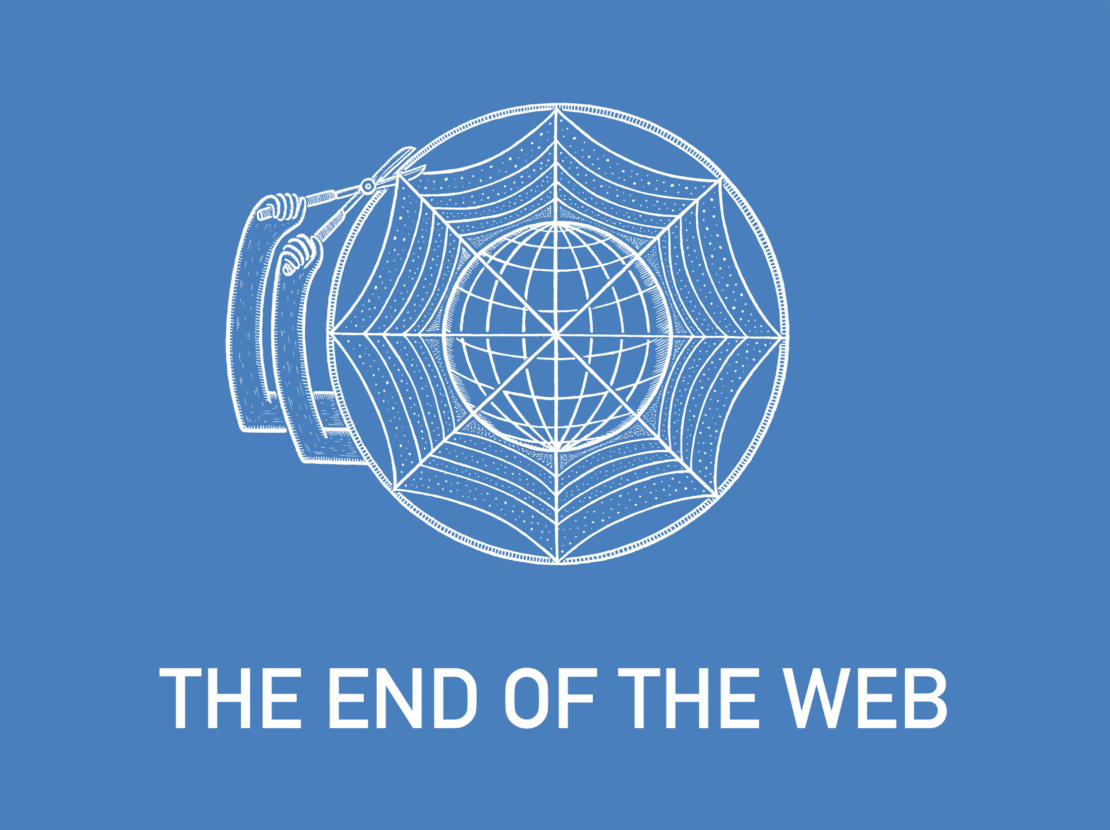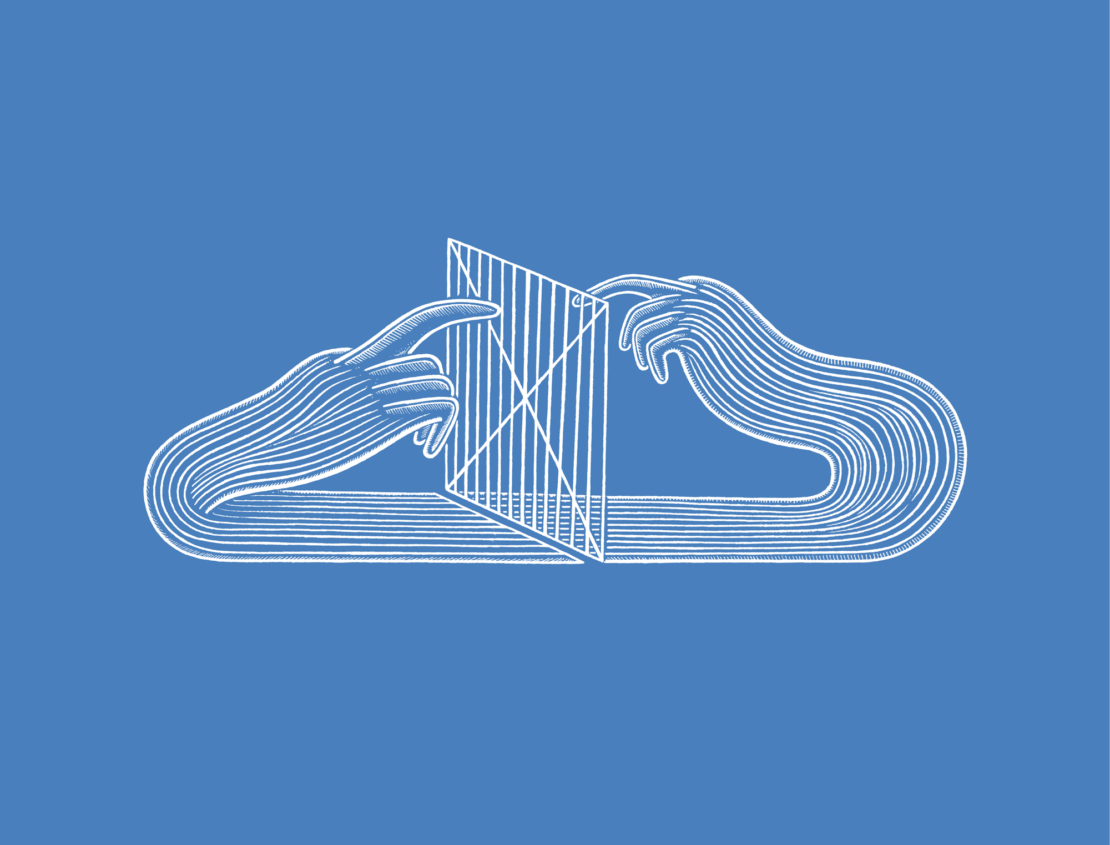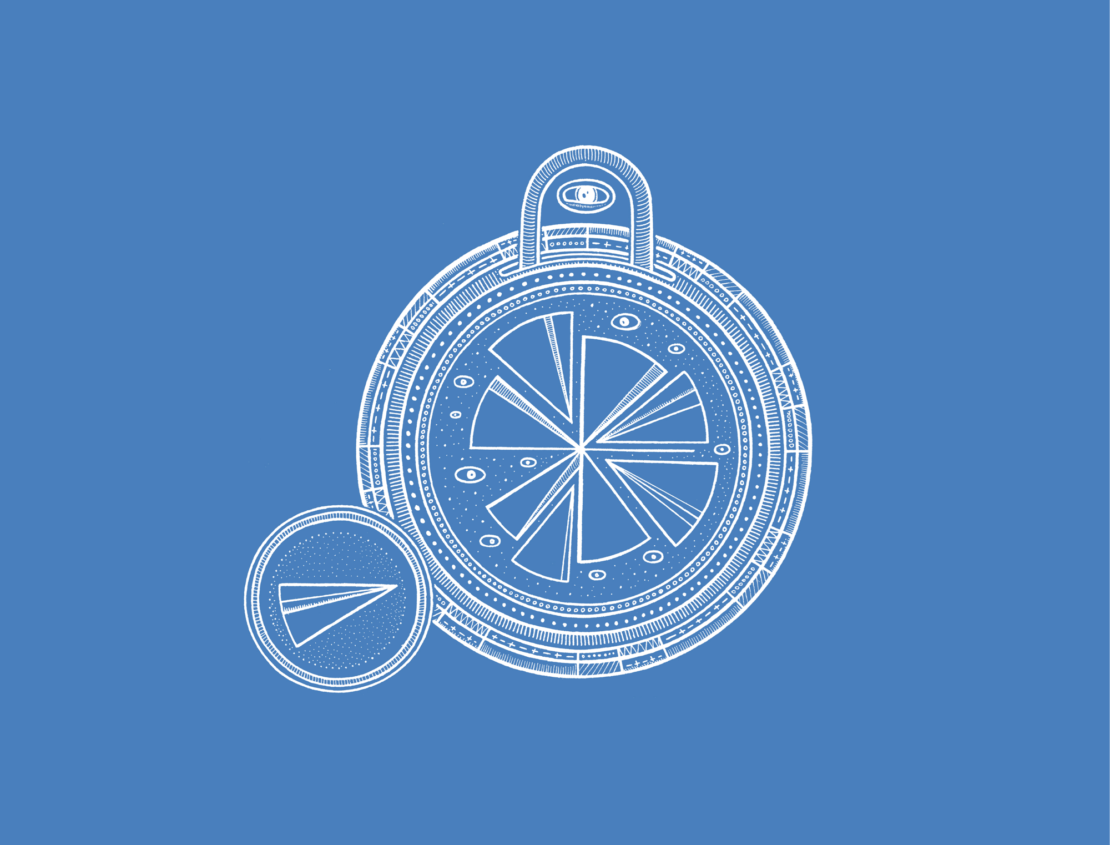
The end of the web
In the past year, as we have witnessed the upending of the political order, the internet has been the theatre where many of the battles have been fought: from the hacking and leaking of Democratic party emails, to the proliferation of fake news and alternative facts, and yes, the outpourings of @realDonaldTrump.
With domestic and geopolitical tensions rising, governments are finding it increasingly hard to function amid a constant barrage of uncontrollable information and potential cyber-attacks, making them grow more wary both of the internet's influence and their ability to control it.
Listen to an audio version of this article, brought to you by Curio.io
The fallout from this means we are facing the prospect of countries around the world pulling the plug on the open, global internet and creating their own independent networks. We might be about to see the end of the world wide internet as we know it.
With globalisation under attack, the ultimate bastion of borderlessness – the global internet – might very well be one the biggest scalps taken by the newly emerging world order heralded in by Brexit and Trump. If a global orthodoxy of free trade, soft power and international organisations is overpowered by belligerent nations and isolationism, the net will inevitably be swept away with it.
We might be about to see the end of the world wide internet as we know it
Yet although fragmentation – and ultimately also Balkanisation – will carry great social and economic cost, it could also be an opportunity. Europe, which has already been flexing its muscles when it comes to internet policy, now finds itself forced to rely less on US cooperation. It should therefore become a frontrunner in developing an alternative, decentralised internet, with its root values of fairness, openness and democracy restored. This could help the net – and indeed Europe – to become more resilient again. As much as we fear the 'splinternet', we should welcome the Euronet.
Weaponisation of the internet
Since we've become dependent on the internet for almost everything we do, dangers to the network's integrity threaten devastating effects. Governments may be tempted to turn inwards in an attempt to shield themselves and their citizens from cyber-attacks.
Last October, unknown hackers used an array of badly secured 'internet of things' (IoT) devices to bring down most of the internet on the east coast of America in one of the largest DDoS (distributed denial-of-service) attacks to date. While depriving Americans of Amazon and Facebook for several hours was surely an inconvenience, the potential of the weaponised internet to do harm is infinitely greater.
As more of the components of a country's critical infrastructure move online, the number of possible targets grows too. Hackers shut down a significant part of Ukraine's electricity grid in 2015, and crippled several important Estonian industries, including its banks, in 2007.
Sign up to our newsletter
Many cyber-security experts warn about the lacklustre defence of everything from air traffic control towers and voting machines to nuclear plants. One well-placed attack could do more damage than the most aggressive of traditional military campaigns, at a fraction of the cost. Because of the high degree of uncertainty surrounding cyber-capabilities – 'know your enemy' is a hard adage to follow if potential culprits and their capabilities are so tough to track – it has become impossible for governments to completely shield their countries from cyber-attacks.
The growing urge to control the internet has also become apparent over the influence of so-called fake news. Distorting public opinion and fact as a manipulation technique is nothing new: it's been used since Roman times. But the relentless pace and scope with which the internet allows information to disseminate is quite unprecedented. Governments and the media (who have themselves often swapped truth for clicks) are having an increasingly hard time stemming the flow of biased or misleading news stories. So the democratic process suffers.
The solutions offered by the reluctant tech giants providing a platform for fake news won't be sufficient to stop it altogether. This will prompt more countries to follow Russia and China in building their own platforms like VKontakte and Baidu, thus reducing foreign influence and allowing for extensive censorship and monitoring. The desire of developing countries to establish their own social networks will see them retreat into their own national bubbles.

Fragile infrastructure
While cyber attacks and false information campaigns use the internet to attack the infrastructure by which our societies function, the internet's own infrastructure is also at risk. Despite the internet's ephemeral, lawless appeal, its underlying network of cables, tubes and wires is very much rooted in the physical world. Over 99 per cent of all global internet communications are facilitated by an impressive web of undersea cables, connecting all corners of the world. A submarine deliberately destroying one of these cables in a hard-to-reach place could bring down access to parts of the internet for weeks; and so, by extension, all the systems that rely upon it.
The fallibility of this shared infrastructure also makes it impossible to keep foreign or hostile actors out of domestic affairs. Though governments that heavily restrict internet access might find it easier to prevent information from flowing in and out of the country, they are still reliant on the same co-owned systems, with some parts inevitably falling under other countries' jurisdictions.
If the current global orthodoxy is overpowered by belligerent nations and isolationism, the net will be swept away with it
This became very clear after the 2013 Snowden revelations, which showed that the US routinely tapped into foreign internet traffic routed through the country. The massive scale of this monitoring even led then president of Brazil Dilma Rousseff to call for the construction of an undersea cable from Brazil directly to Europe, bypassing the prying eyes of the National Security Agency altogether. And US intelligence agencies are by no means the only ones doing this kind of snooping, as we know all too well.
With various nations eyeing each other suspiciously and traditional alliances crumbling, building alternative structures to make foreign interference more difficult seems a logical consequence.
Who rules the internet?
It won't just be the actual infrastructure and 'hard' elements of the internet where governments will seek more independence. Internet governance, the catch-all term to describe the processes and decisions that determine how the internet is managed, and how its technical norms and standards are set, is increasingly complex.
In principle, no single actor should be in charge of the internet governance processes. Ideally, these should be overseen by a multi-stakeholder model where governments, the private sector and advocacy groups would have an equal voice and where anyone could be allowed to become involved. In practice, however, it is US government institutions and companies – yes, the usual suspects – that set the rules. They tend to be over-represented in meetings, and in charge of some of the largest regulatory bodies. American stewardship over the internet has long been an area of contention. Countries like China, Russia, and many (mainly developing) countries want more control over their own domestic networks, preferring to see the current model replaced by something more Westphalian, perhaps resembling the United Nations.
Most popular
Why the world wide web will break up Is there such thing as a 'criminal' face? What lettuces tell us about deregulating BritainThis discussion will likely flair up again soon as the Trump administration seeks ways to reverse the Internet Assigned Numbers Authority (IANA) transition: an arcane but highly controversial policy issue. IANA is the agency in charge of maintaining the global DNS (Domain Name System) as well as managing Internet Protocol (IP) address allocation and other important basic structural functions of the internet. The internet’s IANA functions had traditionally been managed by the non-profit ICANN (the Internet Corporation for Assigned Names and Numbers), but remained under contract of the US Department of Commerce, which oversaw its processes – effectively leaving it under US government control. After almost 20 years of bickering and international kowtowing, IANA was brought under full ICANN control last October, finally becoming fully independent. This to the great dismay of many Republican lawmakers; particularly senator Ted Cruz, who has been fighting to stop the process for years.
If the US government does decide to overturn the transition (and Trump has certainly shown enthusiasm for overturning decisions of the previous administration), it will do a lot of damage to the American-led governance process. How much credibility can it have when the most important partner doesn't even play by the rules?
As these tensions increase, we'll likely see a push for more government bodies to take control of internet governance (such as the short-lived, Brazil-led NETMundial initiative), abandoning the more inclusive and cooperative approach involving businesses and civil society organisations. Then if the process fell even further apart, it would be a substantial challenge to the interoperable global internet, as regulations and standards swiftly went in different directions.
The Big Four
Though the internet was initially heralded as the greatest democratiser of information since Gutenberg, most data now flows through only a handful of companies. Silicon Valley tech giants, with the 'Big Four' of Apple, Google, Facebook and Amazon at the helm, rake in most of the spoils of the all-conquering global online economy.
In their ambition to expand even further, these tech companies are themselves also an important cause of internet fragmentation, erecting 'walled gardens' all over the world. Facebook's controversial Free Basics service, which offers free data plans to users in developing countries, but which restricts access to a small number of Facebook-approved websites, is a prime example. Some call it digital colonialism.
These moves aimed at generating even more revenue, concentrated in the hands of the few as inequality rises, understandably cause concern among governments and citizens alike. But our main worry should not be about economics. The Big Four – controlling our data, as well as our access to information – wield an inordinate amount of power. Indeed, Denmark recently announced it would appoint a digital ambassador specifically to deal with these technology giants, citing their influence as larger than that of many countries.
Citizens worldwide have become so dependent on these platforms that there are effectively no readily available alternatives to move to if things turn sour. The sheer scale of the Women's March and similar demonstrations in recent weeks would not have been possible without the ability to organise online. What if these channels fall away, their freedom restricted by companies under the yoke of a hostile government?
Though many American technology companies have already pledged they will not assist with the creation of a 'Muslim registry' – and have pushed back on Trump’s latest immigration restrictions – we have to be very aware that the amount of personal data they have on each of us would make it far too easy for them to do so.
Foreign governments, which in the current political climate cannot rely on Google abiding by its mantra, 'Don't be evil', will aggressively start to pursue the construction of domestic alternatives. It is something we are already seeing happening worldwide.

The splinternet
Though the dream of the web internet pioneers was one of a completely open, non-hierarchical internet, over the years barriers have been springing up that restrict this freedom. Bit by bit, the internet is becoming more cordoned off.
The idea of splitting up the internet into different, Balkanised internets – with a completely separate infrastructure – is not new. After the Snowden revelations, Germany took action and started looking into the construction of the 'Internetz', a German-only network (although one that allows for the possibility of expanding to the rest of the EU).
We do not currently have an example of a real internet island in place, but the closest version we see is probably the Great Firewall of China. Though China hasn't built an entirely separate infrastructure, its internet looks entirely different from what we are used to, with content heavily censored and many platforms and websites completely banned.
Russia appears to be following suit. Last November, Russia banned LinkedIn from operating in the country because the social network did not adhere to a new law decreeing that all data generated by Russian users should be stored within Russia itself. In recent weeks, news has also emerged that Moscow has been working with Beijing to implement something similar to the Great Firewall for its own domestic users. Democracies and autocracies alike have long come to understand the great power of the internet and have learned how to both harness and restrict it.
Who will be the first to go it alone? It's difficult to say yet but the usual suspects are lining up: China; Russia; Europe; even Trump's America. Other countries like Brazil or Turkey might see a compelling reason to do so as well.
Now that we are so used to a ubiquitous and global internet, it's hard to imagine what a world of fragmented, national internets might look like. What we do know is that the internet of fun and games, of unfettered access, is quickly coming to an end. When it does, it will be another big nail in the coffin for globalisation.
Breaking free
The idea of a Balkanised internet, of different national and supranational internet islands, is a dark one. What living in such a future would look like, no one knows. Inevitably, though, it would herald a world of less mutual understanding, less shared prosperity and shrinking horizons.
However, the fragmentation of the internet need not be bad news. As the limitations of its original incarnation are becoming increasingly clear, starting from scratch provides us with an important opportunity to right our initial wrongs. We can build a network or networks that are more ethical, inclusive and resilient to outside threats.
While this is a moment of disharmony and uncertainty for the European project, the EU has much it agrees upon when it comes to policy and regulating the internet's mostly American corporate giants: from its ambitious data protection policies and the right to be forgotten, to the Apple tax case. But it could do more. The global internet as we know it today began as a public space where everyone had an equal opportunity to use it as we liked. But it has quickly privatised, locking us into platforms that 'harvest' our data. As European citizens grow increasingly concerned about the negative impacts of the internet, the EU has a great opportunity.
The fragmentation of the internet allows us to start from scratch, with an important opportunity to right our initial wrongs
The EU should take a different approach to the internet and, rather than making it an unregulated free-for-all, consider it a 'commons': a public good open to all, excluding none. The EU could create and fund the infrastructure for this and help ensure safety for all. Meanwhile, small businesses and individuals would do their bit by creating a variety of tools to add to this commons, which would become fully interoperable through shared standards and underpinning technologies.
One necessary component of such an internet commons is that it should be decentralised. Decentralising the internet and rethinking its structure would allow users to take back control over the network of networks, letting them manage their own personal data rather than giving it away to large companies, as well as offering them more choice over the tools they use. It is also often said that distributed internets would also inherently be much safer: largescale cyber-attacks are easier to prevent if we reduce the number of central nodes that traffic can travel through.
But a European internet would above all need to be radically ambitious – especially with the EU in a fractured state. The rules for the decentralised, new internet are still wide open, and we have the opportunity to set them. The emergence of a new world order is forcing Europe to rethink itself, come closer together and defend its values in the world. Creating a completely new internet built around these values – and open to any like-minded country to join – might be one extraordinarily effective way of achieving it.